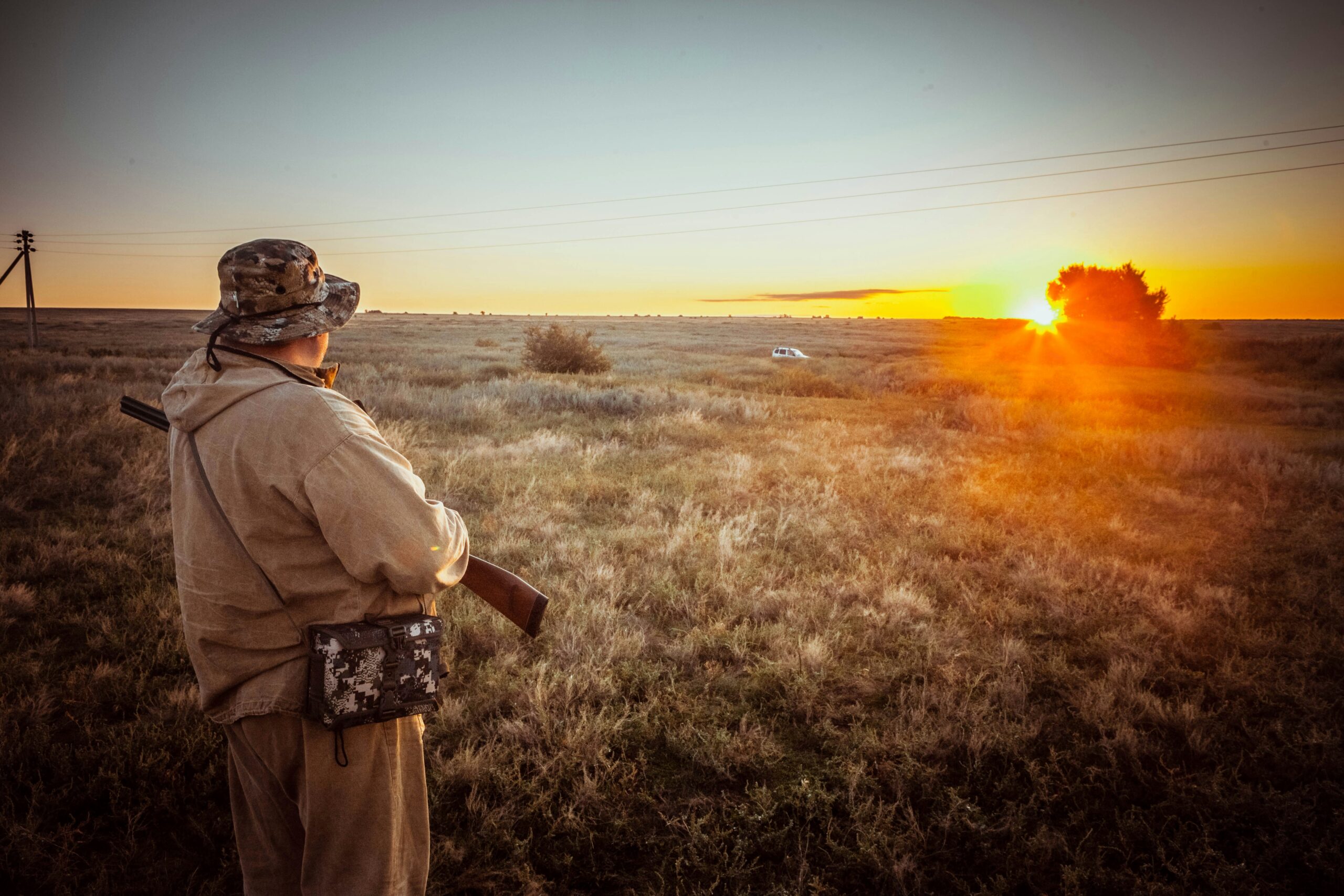Hunting is not just an outdoor activity; it’s an intricate blend of skill, patience, and preparation. While the excitement of the chase and the thrill of the hunt are undeniable, success in the field often begins long before you set foot on the trail. The true essence of a successful hunt lies in the careful and thoughtful preparation that precedes it. In this article, we will explore the essential preparations every hunter should make before embarking on a hunting trip, ensuring that you’re ready for anything the wilderness throws your way.
1. Research the Area and Know Your Target
The first step in preparing for a hunt is understanding the land you’ll be navigating and the animals you intend to pursue. Every hunting location is unique, with its own set of challenges and characteristics. Whether you’re hunting in dense forests, open fields, or rugged mountains, familiarize yourself with the terrain, weather patterns, and the species you plan to hunt.
Research is crucial:
- Topography: Learn about the geography of the region. Are there dense forests, hills, or valleys? Understanding the lay of the land will help you plan your movements and select the best spots for your hunt.
- Wildlife Habitats: Study the animals’ habits and habitats. What are their preferred feeding and bedding areas? When and where are they most active? This knowledge will guide your hunting strategy and increase your chances of a successful hunt.
- Local Regulations: Make sure you’re aware of the hunting regulations in the area, including hunting seasons, bag limits, and any specific rules or restrictions. Compliance with local laws ensures a safe and ethical hunting experience.
2. Gather and Inspect Your Gear
Your gear is your lifeline in the wilderness. Before you head out, ensure that all of your equipment is in top condition and that you have everything you need for the hunt. Here’s a checklist to help guide your preparation:
- Weapons: Whether you’re using a rifle, bow, or shotgun, thoroughly inspect your weapon to ensure it is functioning properly. Clean and lubricate it as necessary, and check the sights or scope for accuracy. Practice with your weapon before the hunt to ensure you’re comfortable and accurate.
- Ammunition/Arrows: Bring plenty of ammunition or arrows for your weapon. Consider the type of game you’ll be hunting and make sure your ammunition is suitable for the task.
- Clothing and Footwear: The right clothing is crucial for comfort and concealment. Opt for layers that will keep you warm or cool depending on the season. Camouflage is important for blending into the environment, but make sure it matches the landscape you’ll be hunting in. Don’t forget sturdy, weather-resistant boots that will allow you to navigate rough terrain comfortably.
- Safety Gear: Always prioritize safety. A first aid kit, headlamp, compass or GPS, whistle, and a hunting knife should be part of your basic gear. A blaze orange vest or hat (depending on your area) can also be essential for visibility, especially when hunting in areas with other hunters.
- Binoculars and Optics: Good optics are invaluable in spotting distant game. A pair of binoculars can help you spot animals without alerting them to your presence, allowing you to plan your approach more effectively.
3. Physical and Mental Preparation
Hunting demands both physical and mental readiness. The more prepared you are physically, the more enjoyable and effective your hunt will be. Physical fitness can make the difference between a tiring, frustrating trip and a successful, rewarding one.
- Fitness: Depending on the type of hunt, you may need to hike long distances over rugged terrain. Ensure you’re in good condition to handle the demands of the hunt. Cardiovascular fitness, leg strength, and endurance are particularly important for hunters who plan to cover large areas on foot.
- Mental Focus: Mental preparation is just as important as physical readiness. The wilderness can be unpredictable, and maintaining a clear, calm mind will help you make quick decisions and remain focused. Visualize the hunt in your mind: the terrain, your movements, the signs of the game, and the eventual shot. Mental clarity will help you handle challenges such as tracking or waiting patiently for the right moment to act.
4. Map Out Your Hunt Plan
A solid hunting plan can keep you organized and reduce risks in the field. Mapping out your hunt should involve:
- Route Planning: Study the area and mark key landmarks, water sources, and potential hunting spots on a map. Determine your entry and exit routes and share them with someone you trust in case of emergencies.
- Camp Setup: If your hunt spans multiple days, plan where you’ll set up camp. Choose a location that’s safe, dry, and close to water if possible. Ensure that it’s far enough from the game’s likely travel routes to avoid disturbing the area but still convenient for easy access.
- Time Management: Decide on the best times to hunt, whether that’s early in the morning or late in the evening. Plan for breaks and rest periods, and ensure you’re leaving enough daylight for a safe return to camp or your vehicle.
5. Pack for the Hunt
Packing is an art in itself. You want to bring everything you need without overloading yourself with unnecessary items. Here’s a guide for packing the essentials:
- Food and Water: Bring enough food for your hunt, including high-energy snacks like granola bars, jerky, and trail mix. Ensure you have enough water to stay hydrated throughout the day.
- Shooting Equipment and Tools: Don’t forget any tools you might need, such as a game cleaning kit, rope, or a deer drag. These items will help you field dress and transport your game once it’s harvested.
- Weather Gear: Be prepared for changing weather conditions. Bring a rain jacket, extra socks, gloves, and any additional layers that might be necessary. Weather in the wild can shift unexpectedly, so staying prepared will keep you comfortable and safe.
6. Pre-Hunt Practice and Mock Drills
No matter how seasoned you are, it’s always a good idea to practice before the hunt. Set aside time to:
- Shooting Practice: Spend time at the range to fine-tune your aim and improve your shooting form. The more confident you are in your shooting, the better your chances of making a clean, ethical shot when the time comes.
- Tracking Drills: Practice tracking animals or identifying signs of wildlife in the area, such as footprints, droppings, or broken branches. These skills will help you better understand the terrain and increase your awareness in the field.
- Scenario Training: Consider running through different hunting scenarios. What will you do if you spot an animal at long range? What if you lose your footing or encounter unexpected weather conditions? Preparing for the unexpected helps you stay calm under pressure.
7. Take Care of Your Mental State and Expectations
Lastly, remember that hunting is as much about patience and respect for nature as it is about the thrill of the hunt. Adjust your expectations before you head out. Some days will be filled with excitement, while others might test your patience. Stay positive, appreciate the time spent in nature, and focus on the experience itself rather than just the outcome.
Conclusion
The key to a successful hunting trip lies in the preparation you do before you ever set foot in the wilderness. From understanding the land and wildlife to ensuring your gear is in top condition, mental and physical readiness, and careful planning, every step matters. Hunting is a rewarding and challenging endeavor, and with the right preparation, you can ensure that your time in the field will be both enjoyable and fruitful. So, take the time to plan, practice, and pack—your next adventure awaits.


